The finance sector is going through changes due, to the integration of artificial intelligence (AI) and automation technologies. These cutting edge innovations are transforming positions and responsibilities in the industry pushing professionals to adjust and secure their careers for the future. This article explores;
- How AI and automation are affecting roles in finance
- job changes and new opportunities
- Ways to enhance your skills and prepare for the future in finance
As AI and automation continue to reshape the financial landscape it’s essential for professionals to stay proactive and well informed as they navigate these evolving shifts. By grasping the trends and impacts you can position yourself for success, in the era of finance.
Understanding AI and Automation in Finance

AI and automation are changing the finance sector by introducing systems and automated processes that can handle tasks typically done by people. In finance AI refers to computer systems that imitate intelligence learning from data to make decisions or forecasts. On the hand automation involves using technology to automate tasks and workflows based on rules.
The integration of AI and automation, in finance is motivated by factors;
- Cost efficiency; AI and automation can cut costs by streamlining processes and reducing work.
- Enhanced efficiency and precision; These technologies can swiftly process amounts of data accurately minimizing errors and boosting productivity.
- Improved customer service; AI driven chatbots, robo advisors and personalized recommendations can offer customer support and customized financial guidance.
- Regulatory adherence; Automated systems aid organizations in complying with regulations, like money laundering guidelines and risk management protocols.
Impact on Specific Finance Roles:
AI and automation are changing finance positions reshaping job duties and skill demands. Lets delve into the influence of these technologies, on sectors, within the finance field.
Investment Banking:
- Analysis and modeling; AI tools can efficiently analyze extensive data sets, spot trends and create financial models making the due diligence process more efficient.
- Robo advisors, in wealth management; AI based robo advisors offer tailored investment guidance and portfolio management services reshaping the landscape of wealth management practices.
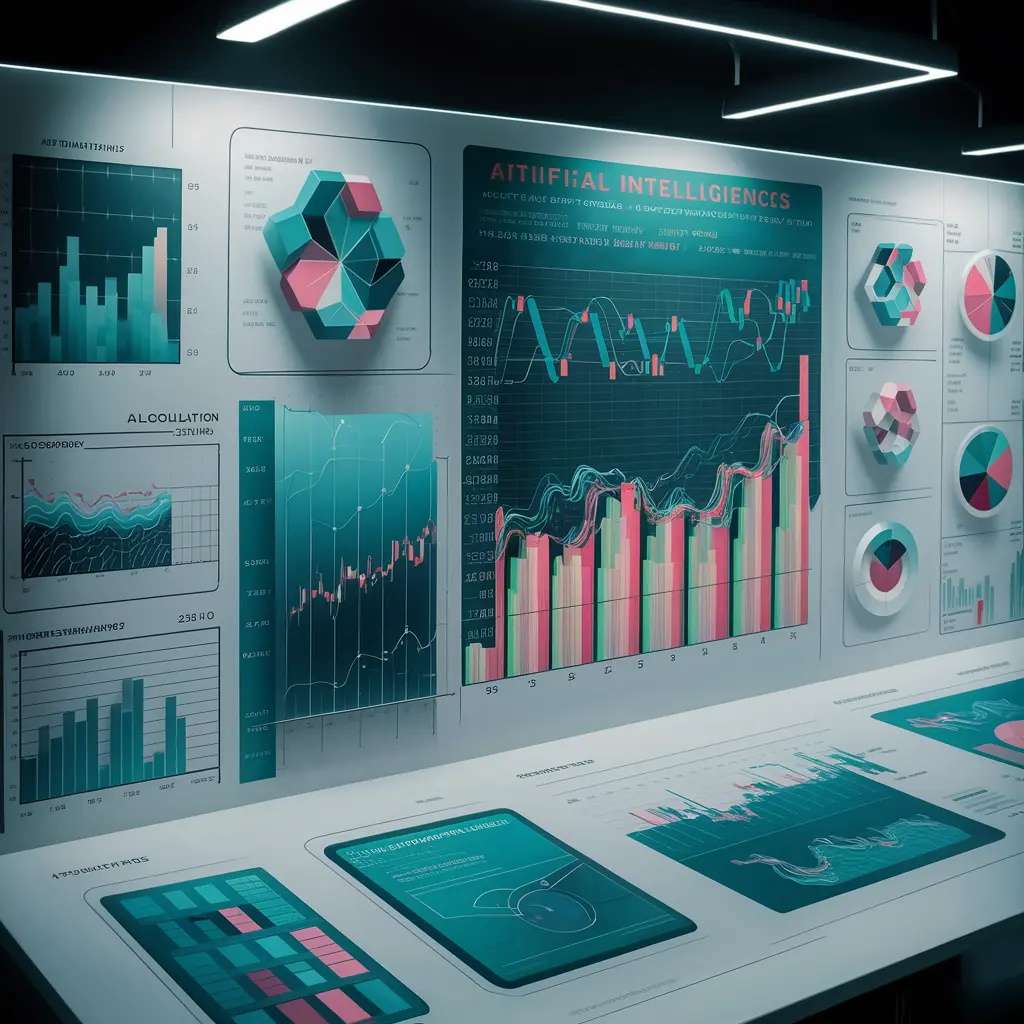
Trading and Portfolio Management:
- Algorithmic trading and high-frequency trading: Sophisticated algorithms can execute trades faster and more efficiently than humans, leveraging real-time data and market patterns.
- AI-powered portfolio optimization and risk management: AI systems can analyze complex data sets, identify investment opportunities, and manage portfolio risk more effectively.
Accounting and Auditing:

- Automated bookkeeping and financial reporting: AI and robotic process automation (RPA) can automate routine tasks like data entry, reconciliations, and report generation.
- AI-assisted fraud detection and audit processes: Machine learning algorithms can identify anomalies, patterns, and potential fraudulent activities, enhancing audit processes.
Compliance and Risk Management:
- AI-driven transaction monitoring and anti-money laundering measures: AI can analyze vast amounts of data, detect suspicious transactions, and aid in anti-money laundering efforts.
- Automated regulatory reporting and compliance checks: Automated systems can ensure compliance with ever-changing regulations and generate required reports efficiently.
Potential Job Displacements and New Opportunities:
While AI and automation are transforming the finance industry, they also raise concerns about potential job displacements. Certain roles and tasks that involve repetitive, rule-based activities are at a higher risk of being automated.
However, it’s essential to note that job displacement does not necessarily mean job elimination. Instead, it often leads to a shift in job responsibilities and the emergence of new opportunities.
Jobs at Risk of Automation:
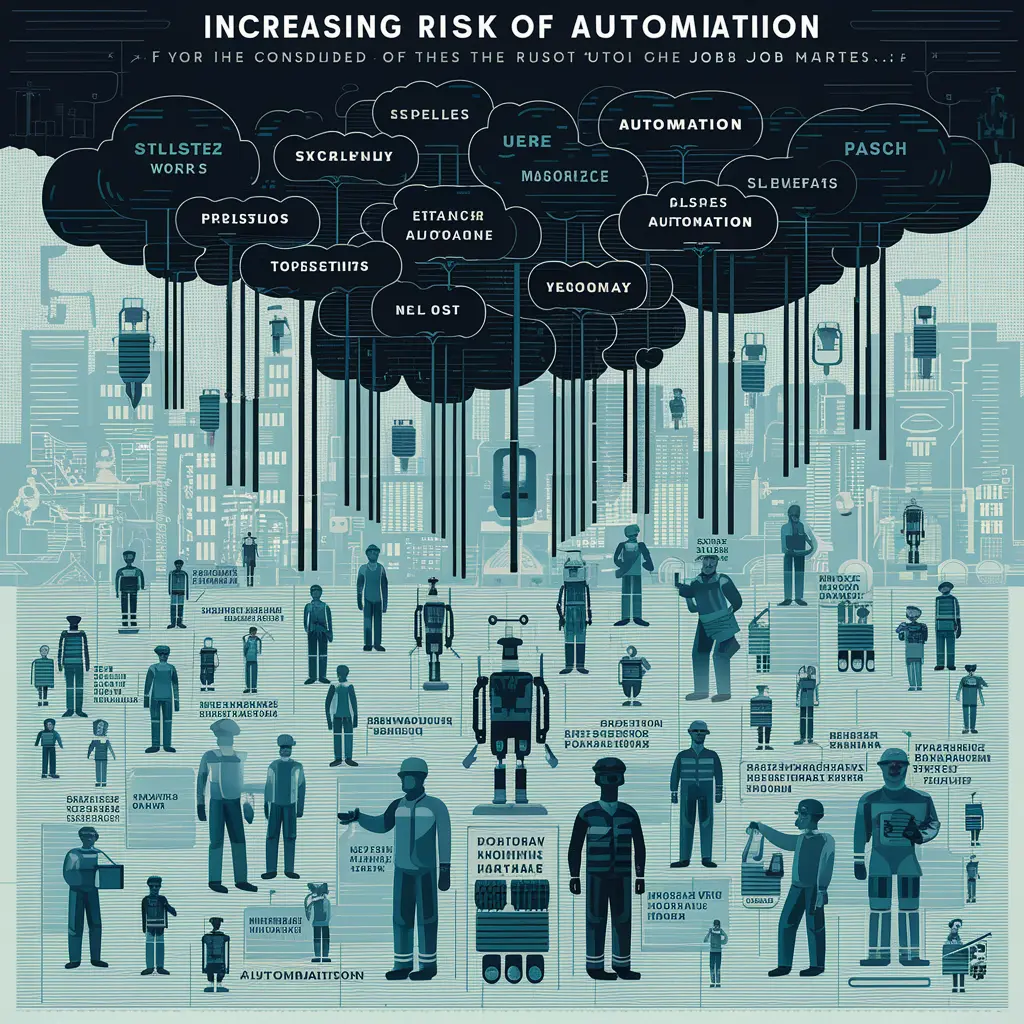
- Entry-level positions involving data entry, bookkeeping, and routine administrative tasks
- Roles focused on repetitive and standardized processes (e.g., loan processing, account reconciliation)
- Analytical roles that involve interpreting structured data (e.g., financial modeling, risk analysis)
Emerging Job Roles and Skills in Demand:
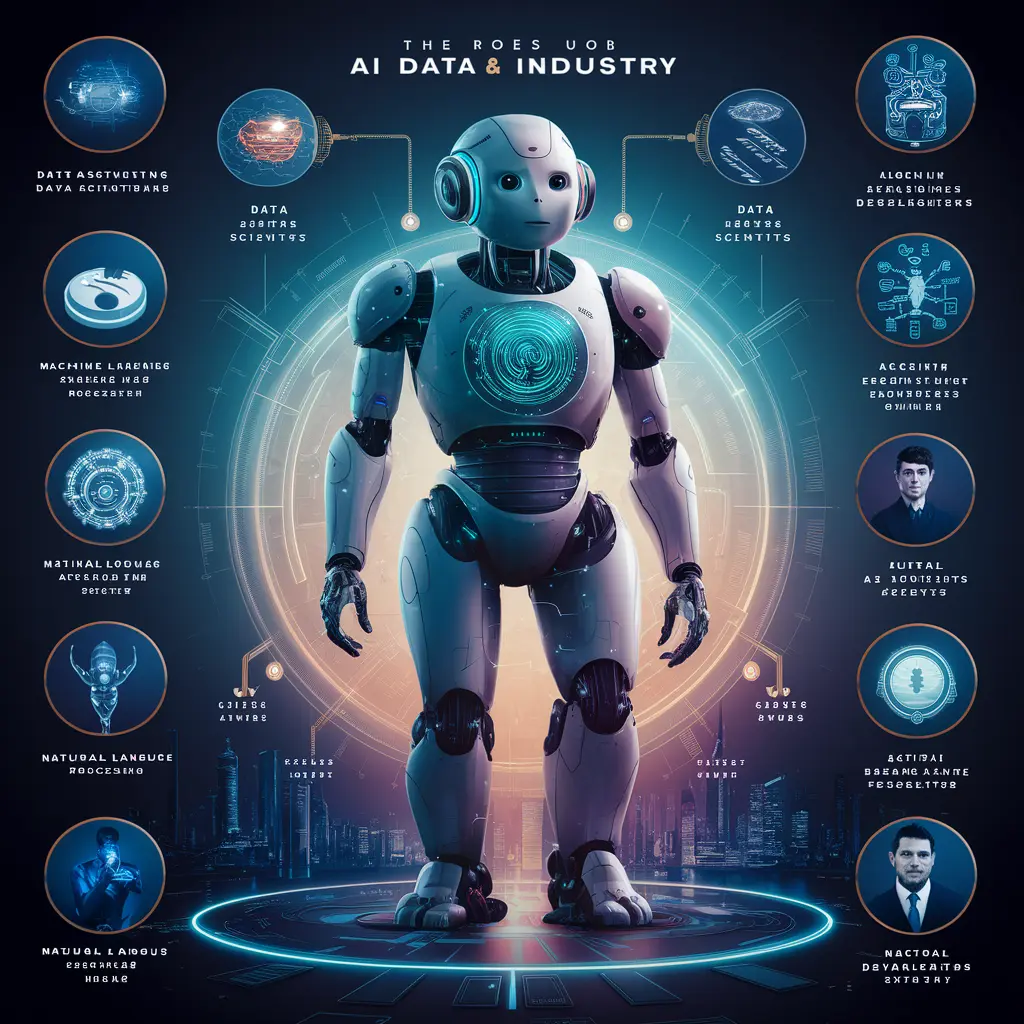
- Data Scientists and Machine Learning Engineers: Professionals skilled in developing and deploying AI models, analyzing large datasets, and leveraging machine learning algorithms.
- AI and Automation Specialists: Experts in designing, implementing, and maintaining AI and automation systems tailored to the finance industry.
- Cybersecurity Professionals: With the increasing reliance on digital technologies, cybersecurity experts are crucial to protect financial data and systems from cyber threats.
- Soft Skills: While technical skills are important, soft skills like critical thinking, creativity, communication, and problem-solving will become increasingly valuable as AI and automation handle more routine tasks.
Strategies for Future-Proofing Your Finance Career
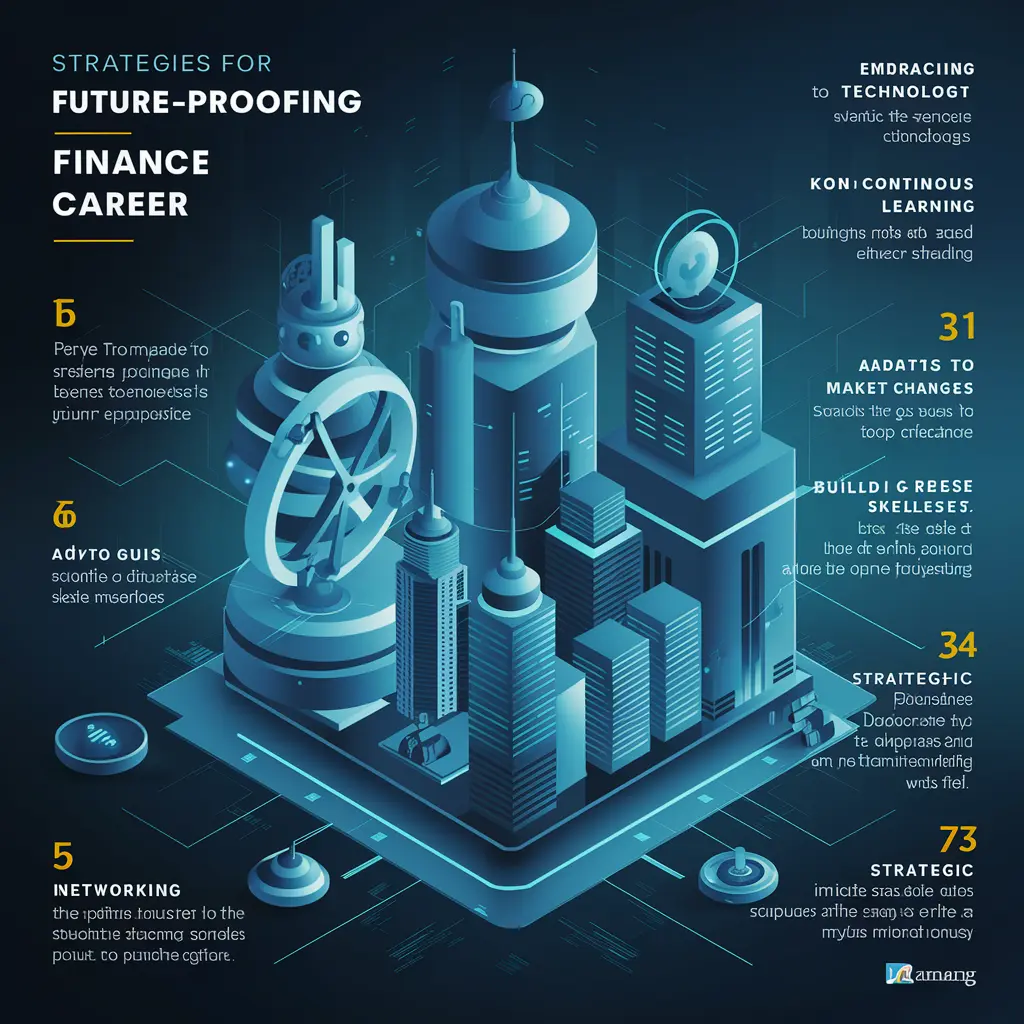
To navigate the impact of AI and automation successfully, finance professionals must proactively future-proof their careers. By adopting the right strategies, you can stay relevant, competitive, and position yourself for success in the evolving finance industry. Here are some key strategies to consider:
Upskilling and Continuous Learning:
- Online Courses and Certifications: Enroll in online courses, obtain certifications, and continuously expand your knowledge in areas such as data science, machine learning, and fintech.
- Attending Industry Events and Conferences: Participate in conferences, seminars, and workshops to stay updated on the latest trends, technologies, and best practices in finance and AI.
New Technologies and Tools: Become proficient in using AI-powered tools, automation software, and advanced analytics platforms. Familiarize yourself with their capabilities and applications in finance, and continuously develop your technical skills.
Developing a Growth Mindset and Adaptability: Cultivate a growth mindset that embraces change and continuous learning. Be open to adapting to new roles, responsibilities, and ways of working as the finance industry evolves.
Cultivating a Unique Value Proposition: While AI and automation may automate certain tasks, humans will remain invaluable for their soft skills, critical thinking, and domain expertise. Focus on developing a unique value proposition that combines your financial knowledge, industry experience, and interpersonal skills.
Case Studies and Industry Examples:
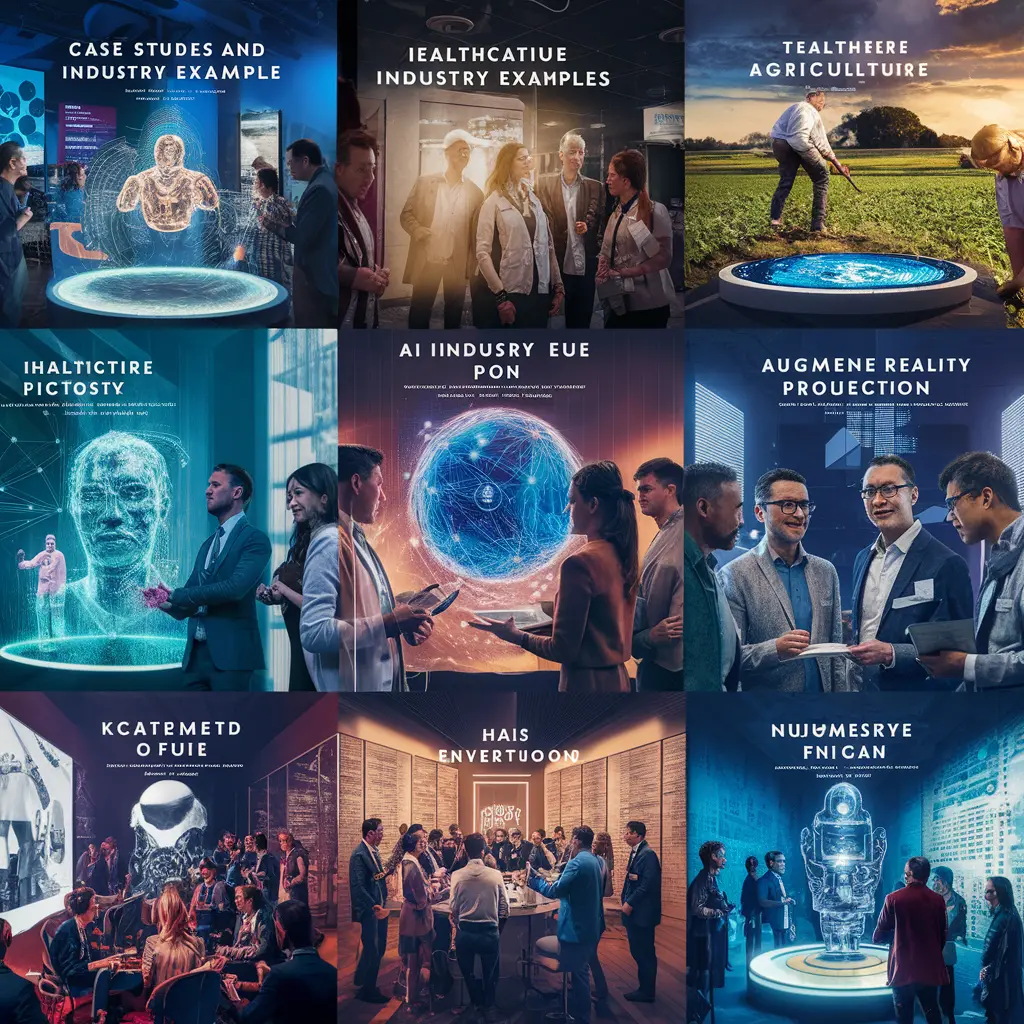
To better understand the impact of AI and automation in the finance industry, it’s helpful to examine real-world case studies and examples of companies leveraging these technologies. By exploring their experiences and lessons learned, we can gain valuable insights into best practices and potential pitfalls.
Success Story: JPMorgan Chase & Co. JPMorgan Chase, one of the largest banks in the world, has been a pioneer in adopting AI and automation in finance. The company has invested heavily in developing AI-powered tools and platforms, such as the Contract Intelligence (COIN) system, which can analyze legal documents and extract key data points, significantly reducing manual effort and improving efficiency.
Another notable example is JPMorgan’s use of machine learning algorithms for fraud detection and anti-money laundering efforts. These AI systems can analyze vast amounts of transaction data, identify patterns, and flag suspicious activities, enhancing the bank’s compliance and risk management capabilities.
Lessons Learned:
- Prioritize data quality and governance: Ensure that the data used to train AI models is accurate, complete, and free from biases.
- Involve domain experts: Collaborate with finance professionals to ensure that AI solutions are aligned with business needs and industry regulations.
- Invest in employee training: Provide comprehensive training programs to help employees understand and effectively use AI and automation tools.
- Address ethical concerns: Establish clear guidelines and protocols to address potential ethical issues, such as algorithmic bias and data privacy.
Success Story: BlackRock BlackRock, the world’s largest asset manager, has embraced AI and automation to streamline its investment processes and enhance portfolio management. The company has developed an AI-powered platform called Aladdin, which uses machine learning algorithms to analyze vast amounts of data, identify investment opportunities, and optimize portfolio construction.

BlackRock has also implemented robotic process automation (RPA) to automate repetitive tasks, such as data extraction, reconciliation, and report generation, freeing up analysts’ time to focus on higher-value activities.
Lessons Learned:
- Leverage AI for decision support: Use AI as a decision support tool, complementing human expertise rather than fully automating decision-making processes.
- Foster collaboration between humans and AI: Encourage finance professionals to work closely with AI systems, combining their domain knowledge with the analytical power of AI.
- Continuously iterate and improve: Regularly evaluate and refine AI models to ensure they remain accurate and effective as market conditions and data evolve.
Ethical Considerations:
As AI and automation continue to reshape the finance industry, it’s crucial to address the ethical considerations surrounding these technologies. Responsible and ethical practices must be at the forefront to mitigate potential risks and ensure fairness, transparency, and accountability.
Responsible AI and Automation Practices:

- Algorithmic Bias and Fairness: AI models can inadvertently perpetuate biases present in the training data, leading to unfair or discriminatory decisions. It’s essential to employ techniques like data debiasing, model auditing, and diverse team involvement to mitigate algorithmic bias.
- Transparency and Explainability: Many AI systems, particularly deep learning models, can be opaque black boxes, making it challenging to understand their decision-making processes. Ensuring transparency and explainability is crucial for building trust, enabling human oversight, and complying with regulations.
- Data Privacy and Security: Finance institutions handle sensitive personal and financial data, making data privacy and security paramount. Robust data governance policies, encryption, and access controls must be implemented to protect customer information from unauthorized access or misuse.
- Human Oversight and Accountability: While AI and automation can enhance efficiency, human oversight and accountability should be maintained, particularly in high-stakes decision-making processes. Clear protocols and governance structures should be established to ensure responsible use of these technologies.
Addressing Potential Ethical Concerns:
- Job Displacement and Workforce Transition: As AI and automation displace certain roles, organizations must prioritize workforce reskilling and redeployment programs to support affected employees and facilitate a smooth transition.
- AI and Financial Inclusion: Ensure that AI-driven financial services and products do not perpetuate or exacerbate existing inequalities, and strive to promote financial inclusion for underserved communities.
- AI and Systemic Risk: Assess the potential systemic risks posed by widespread adoption of AI and automation in finance, such as amplified market volatility or cascading failures due to interconnected systems.

Conclusion
The finance industry’s transformation driven by AI and automation is well underway, impacting various roles and job functions. While this shift presents challenges and potential job displacements, it also opens up new opportunities for those willing to adapt and future-proof their careers.
Throughout this blog post, we’ve explored the key applications of AI and automation in areas such as investment banking, trading, accounting, and compliance. We’ve also highlighted the potential job roles at risk of automation, as well as the emerging job opportunities that will be in high demand, such as data scientists, AI specialists, and cybersecurity professionals.
To thrive in this rapidly evolving landscape, finance professionals must embrace continuous learning, upskilling, and developing a growth mindset. Strategies like pursuing online courses, attending industry events, and cultivating a unique value proposition that combines technical expertise with soft skills will be crucial for career success.
Here are the additional resources:
To further your understanding and stay up-to-date on the impact of AI and automation in finance, explore the following recommended books, articles, and online resources:
Books:
- The AI Advantage by Thomas H. Davenport and Abhijit Bhaduri
- Augmented Workforce by Brett Hodge and Sam Ransbotham
- The Future of Finance: Reimagining Financial Services by Hassan Damluji
Articles:
- How AI is Transforming the Finance Industry (Forbes)
- The Future of Banking: AI, Automation and Beyond (McKinsey)
- AI and the Future of Work in Finance (Harvard Business Review)

James Wilson is the insightful financial writer behind the wealth of knowledge on WealthWaves. With a keen understanding of finance and a passion for helping others navigate the complexities of money management, they specialize in crafting informative articles, practical tips, and expert advice to empower readers on their journey to financial freedom.
Join James Wilson on WealthWaves to embark on a path towards financial success and prosperity.








